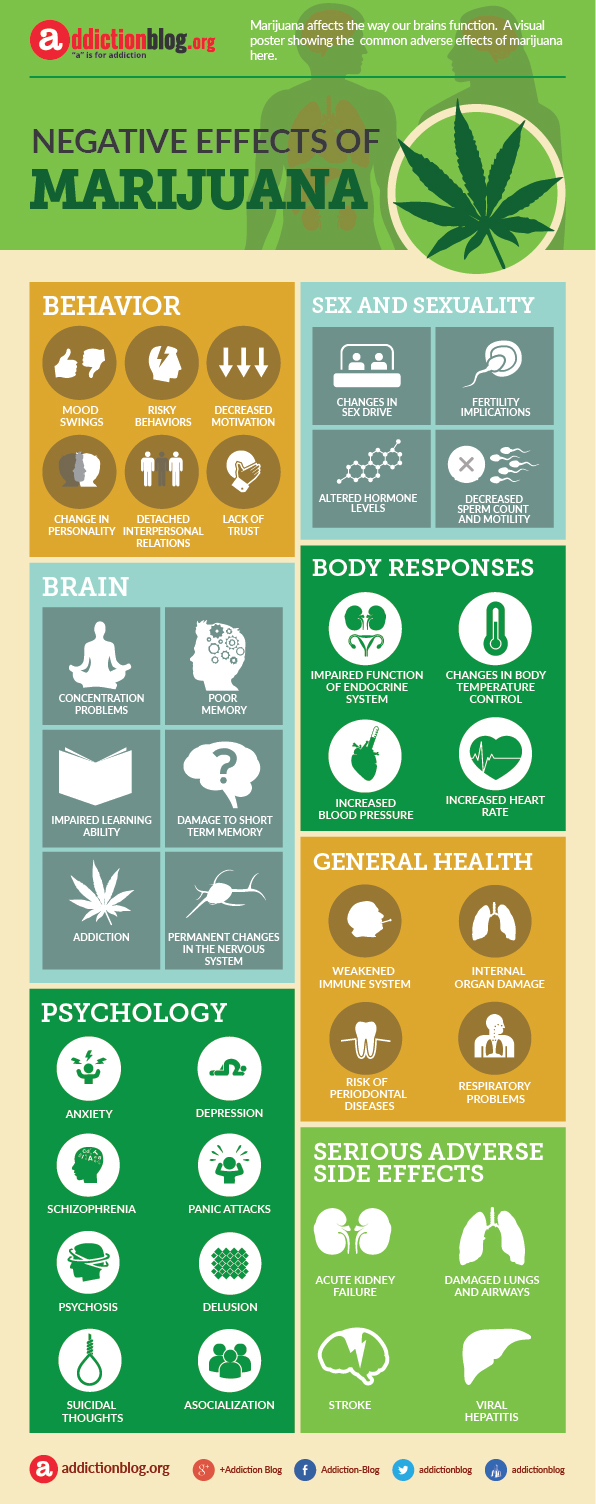Is the grass really greener?
Smoking weed can affect the way our brains and body organs function. In fact, while many people deny that its psychoactive qualities have any negative impact, when THC interacts with the brain, it influences most aspects of our lives. Effects range from behavioral and psychological, from impairment of general health to damage of many vital organs. So while useful medical effects of marijuana are advocated by its proponents, long-term, chronic use of marijuana in larger quantities can negatively influence users.
Brain health and marijuana abuse
Your mental health changes when you smoke weed regularly. In fact, marijuana can both impair and change the way that the brain works. THC quickly passes the blood-brain barrier and acts on the same pleasure centers in the brain that are targeted by heroin, cocaine, and alcohol too. After the substance reaches the brain, it influences our mood, sensory perception, appetite, time perception, behavior, and personality. When the brain is repeatedly affected by THC, people can experience long-term:

- decreased coordination abilities
- depression
- feelings of fear or paranoia
- lowered interest in completing tasks
- memory impairments
- trouble concentrating
- worsened anxiety and panic attacks
Physical and organ changes caused by weed
Marijuana users that have other underlying physical health problems, such as liver disease, low blood pressure, diabetes, heart conditions, or respiratory tact problems, should be extremely cautious of the risks frequent use can bring. Some of the more common and concerning negative side effects of weed follow.
Respiratory problems – Since marijuana smoke irritates the lungs, every day and long-term users can experience coughs, frequent lung illness, and have an increased risk of lung infections. Indications that marijuana smoke can increase the risk of lung cancer have not yet been confirmed by scientists, but are possible (especially since marijuana can be sprayed with chemicals).
Increased heart rate – Marijuana has the potency to keep your heart rate increased for up to 3 hours after smoking, or after the initial effects are felt. Risks of heart problems and even heart attack are higher in the elderly and individuals with pre-existing heart issues.
Sexuality and fertility changes – By changing people’s hormone levels, marijuana can influence the drive and ability for sexual activities. But more importantly, it can take its toll on fertility in both men and women. If smoked during pregnancy, weed can affect certain parts of the baby’s developing brain and result in brain and behavioral problems in a child’s life later on. Children whose mothers smoked weed frequently during pregnancy may experience:
- attention difficulties
- memory problems
- problem-solving issues
Adverse effects of marijuana questions
Did you like our infographic? Let us know in the comments section below and don’t forget to share. Also, if you have anything else you’d like to ask or add, feel free to post again. We appreciate your feedback and try to reply promptly to your inquiries.








Related Posts